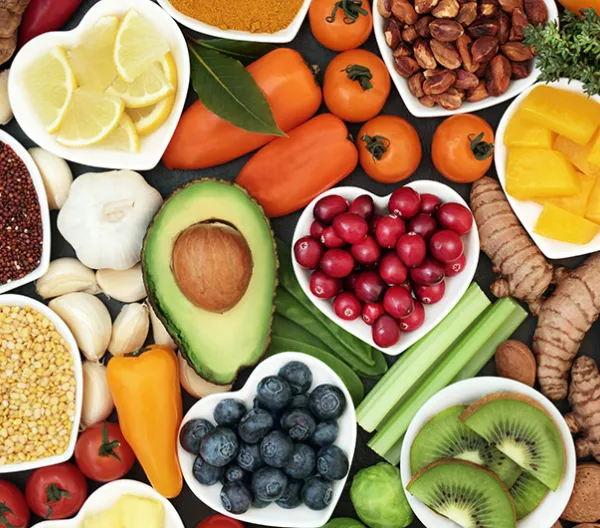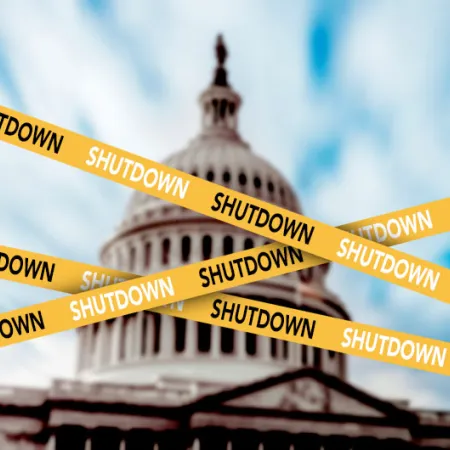On July 4, the President signed the Republican reconciliation plan into law. Colloquially referred to as the One Big Beautiful Bill Act (OBBBA), this legislation includes a wide range of items ranging from funding for vastly expanding immigration enforcement, extensive tax cuts for the wealthiest Americans, to some of the most significant cuts ever enacted to federal benefit programs. With stricter limits on food assistance, new work requirements across various benefit programs, and substantial cuts to Medicaid access, millions of Americans will suffer due to this bill. It will take years for Americans to feel the full effects of the OBBBA. Different provisions related to tax cuts, healthcare access, student loan changes, are slated to happen on different timelines. Here’s what to know.
What does this bill mean for food and nutrition?
The OBBBA impacts the nation’s most important nutrition program in four specific ways:
- Starting in 2027, the federal government will now require state governments to pay an unprecedented share of the food benefits and administrative costs associated with the Supplemental Nutrition Assistance Program (SNAP).
- The OBBBA imposes new work requirements on both SNAP and Medicaid beneficiaries.
- It blocks immigrants that are lawfully present in the U.S., such as refugees and asylum-seekers, from receiving SNAP benefits.
- It removes SNAP work requirement exemptions for veterans, former foster youth, and people experiencing homelessness.
- It limits future updates to the Thrifty Food Plan (TFP) used to set SNAP benefit levels relative to increases in food costs.
Republican leaders in Congress argued that requiring states to pay more to administer SNAP was a measure of “fiscal responsibility” and a way of making sure states had more “skin in the game.” However, this is an unprecedented change in the federal government’s single most impactful nutrition program. As noted by Senate Democrats back in May, “42 million Americans, including 16 million children, 8 million seniors, 4 million people with disabilities, and 1.2 million veterans” rely on SNAP to put food on their tables.
Starting in 2027, state governments will have to pay 25 percent more of the administrative costs for SNAP. To cover these higher costs, states will scramble and likely resort to cutting benefits, limiting state employees’ salaries, raising state taxes, or eliminating funding for other programs. The OBBBA also requires that states directly pay a greater share of the benefit costs for SNAP, depending on their payment error rate. With the way the OBBBA is written, most states have no actual financial incentive to improve their administration of SNAP and its life-saving nutritional benefits.
States with the highest error rates, such as Alaska, can seek temporary delays to their new financial obligations. States with minimal error rates don’t have to worry about these federal changes. However, most states have middling error rates, which put them over the threshold and obligate them to increase their state contributions. With this, the irony is that there is no real benefit for states to improve SNAP management, access, or impact. For all the OBBBA’s talk about fiscal responsibility, these changes represent an unfunded mandate to states that will create many more problems in the future. These changes effectively end SNAP's more than 50-year history as an entitlement program, meaning that all who need food assistance can access the program. States now have to pay to play.
The Center on Budget and Policy Priorities (CBPP) estimates that more than 5 million Americans will lose their food benefits while trying to jump through bureaucratic hoops created by the work requirements clause in the bill. Those requirements will now impact older Americans between the ages of 54 and 64, adults with children under age 14, as well as veterans, former foster youth, and people experiencing homelessness. In a reversal of previous law, the OBBBA now prohibits refugees and asylum-seekers from accessing food benefits through SNAP.
The Thrifty Food Plan (TFP) directly impacts millions of Americans. It is how the federal government calculates the actual dollars and cents of SNAP benefits. Trump’s spending bill restricts the TFP to adjust only for inflation, which means the government has no flexibility to adjust SNAP benefits based on rising food prices, consumption patterns, or changes in dietary guidance. The Congressional Budget Office found an “average reduction of SNAP benefits by $15 per month by 2034 for every single SNAP participant.” Meaning that, thanks to the OBBBA, SNAP benefits will have less purchasing power every year for years to come. This also means that food assistance programs whose benefits are based on TFP will also see cuts, including the Emergency Food Assistance program, Summer EBT, and the Nutrition Assistance Program for U.S. territories.
Which states will be most impacted by this new law?
The short answer: all 50 states.
The long answer: all 50 states, with counter-intuitive exemptions for Alaska and other states with high payment error rates as described above. As an example of how this bill will directly impact people, let’s look at North Carolina. About 13.2 percent of North Carolinians receive SNAP, totaling over 1.4 million people. The North Carolina Department of Health and Human Services (NCDHHS) estimates that 66 percent of families receiving SNAP have children, and more than 34 percent include senior citizens or members of the disability community. As many as 80 percent of households receiving SNAP benefits in North Carolina already include working adults, and more than 46,000 veterans are receiving SNAP.
The government in the Tar Heel State has no good options for meeting the new requirements that OBBBA is imposing. Due to their payment error rate, state legislators will need to raise millions of dollars in state taxpayer money to cover the cost being shifted to their state. Or state bureaucrats could seek ways to reduce program enrollment in SNAP to drive administrative costs down. Or North Carolina could do the unthinkable and completely withdraw from the nation’s most important nutrition program entirely.
Based on the data, 42 states will be required to begin paying an unprecedented share of SNAP program costs. Each of these states faces the same hard choices as North Carolina. These new requirements are set against state budgets that are already struggling and do not account for the serious risk of an economic downturn in the future. According to the Food Research and Action Center (FRAC):
Every lost dollar in federal support also means one fewer dollar for essential public services — schools, public safety, roads, libraries, afterschool programs, and parks.
This is a story that will be playing out in every community and every state, leaving more Americans hungrier and sicker than ever before.
Learn more: Dig into more state specific data on the CBPP website.
What comes next?
Some provisions that impact food and nutrition will be implemented soon, but others will not take effect until 2028. Many of the critical tax provisions of the OBBBA run only until 2029. Some Congressional Republicans are already discussing taking a “second bite of the apple” and proposing even deeper cuts to critical programs like Medicaid.
What you can do
Even though the OBBBA has passed, it is imperative that advocates continue to push for better legislation in the future.
- Visit cspi.org for more information about the latest from Congress and how it impacts public health.
- Sign up for CSPI’s free email action network so you will know when opportunities emerge to push back against bad policies. Many more fights are ahead, and CSPI will be there to do our part.









